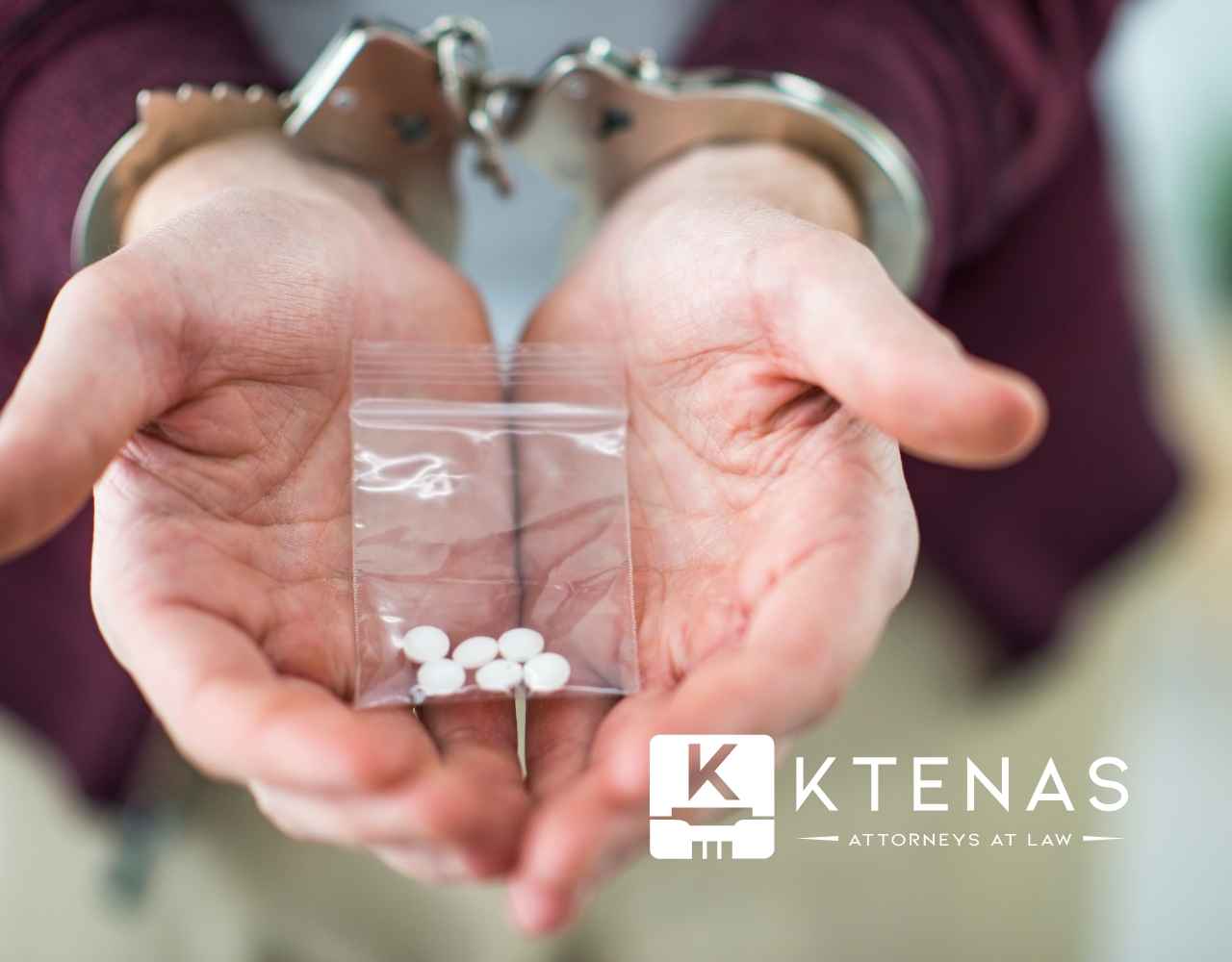Alternative Sentencing Options for Drug Charges in Chicago
2025-04-23T13:15:00
In the state of Illinois, possession with intent to distribute is a serious felony offense that can have permanent effects on your future if convicted. A felony conviction can lead to loss of employment opportunities, costly legal fees and fines, a prison term, and a permanent criminal record. In order to avoid or minimize these penalties and save you time and money, legal representation from a skilled Chicago drug lawyer is your best option.
At Ktenas Law, our legal experience stands out in the Chicago area. If you or a loved one are dealing with possession with intent in Illinois charge, contact us to begin your free consultation with a criminal lawyer who is dedicated, aggressive, and successful.
Possession with intent to distribute is a fairly common phrase that you may have heard on television shows or through a gossiping neighbor, but what does it actually mean?

Intent to distribute means an individual who was in unauthorized possession of a controlled, counterfeit, or look-alike substance knowingly planned a delivery or transfer of the substance to another party. Delivery or transfer simply means “sell.” So in very simple terms, intent to distribute means a person intended to sell a controlled substance.
FAQ: Do I need to get a lawyer for my drug charges in Chicago?
This is a felony crime in the state of Illinois and can carry hefty penalties with a conviction.
So how do you prove someone planned to sell an illegal substance if they didn’t do it yet? Usually, this charge is applied to amounts of illicit substances that are too large for personal use. Again, simply put, if a person has more drugs on them that they could consume alone. Other factors including paraphernalia like baggies, scales, or bookkeeping ledgers can signify intent to distribute.
For the crime of possession of an illicit drug, the minimum sentence in the state of Illinois is a one-year minimum jail term. This includes a conviction for drug possession of a controlled, counterfeit, or look-alike substance. Charges for possession with intent carry harsher penalties because these violations are seen as more heinous as they endanger public safety.
Even though marijuana is a commonly distributed substance in the state of Illinois, it carries lesser penalties. This is because of a recent change in drug possession laws regarding the use and sale of cannabis. For the more common drugs, like cocaine, methamphetamine, ecstasy, LSD, morphine, or heroin the following can be used as a general guideline for statutory penalties for possession of drugs with intent to distribute:
As you can see, possession of a substance with intent to distribute is a serious violation punishable by severe penalties. Subsequent offense violations also carry more severe criminal penalties. A criminal defense lawyer can help you build a strong defense for your best shot at minimum punishment.

The negative consequences can be further affected by other enhancing factors including:
With any of these additional charges, the penalties could be as much as doubled. It’s important to seek legal counsel to obtain the minimum sentence possible for your case.
As in every criminal justice case, a strong defense is based on specific details. After reviewing your unique case, a knowledgeable criminal defense attorney will be able to tailor common defenses to your situation.
In many cases, they may opt to negotiate a plea deal or plea bargain. This is where the prosecution and defense make arrangements for a guilty plea in exchange for a lesser charge or lesser sentence. For example, receiving probation or drug treatment education instead of the maximum sentence, or taking a Class 2 Felony charge instead of Class 3. While the defendant may still have to serve a jail term or pay a fine, it will be greatly reduced compared to the initial penalties. This is usually the best option in cases where there is strong evidence against the defendant. It saves all parties time and money.
If the defendant would like to risk trial, there are other defenses to possession charges that an experienced defense attorney may use to avoid a maximum sentence. The prosecution has to establish unlawful possession with intent to distribute beyond a reasonable doubt. That may not be easy if they do not have strong evidence against you. Your lawyer will be able to outline the risk you may be taking on this route. Perhaps your criminal defense attorney believes the prosecution has limited evidence.
Perhaps the credibility of witnesses can be challenged. Perhaps mistakes were made when filing the evidence making it unsubmissive in court. Or maybe the arresting officer committed violations against your constitutional rights during the arrest. Any of these errors have the potential to get a case dismissed or at least lesser charges or reduced sentencing. An experienced and intelligent Chicago defense lawyer will know exactly what to look for and will be able to advise you on the options for your situation.
At Ktenas Law, we pride ourselves on our aggressive defense strategies. Chicago attorney, Alexander Ktenas is a former prosecutor who is able to use his knowledge of the other side to create a strong criminal defense. If you or a loved one is facing criminal charges, it’s important to obtain legal representation for the best possible outcome. Contact the Ktenas Law office today for your free consultation.

2025-04-23T13:15:00

2025-04-07T11:50:40

2025-03-24T11:55:03

